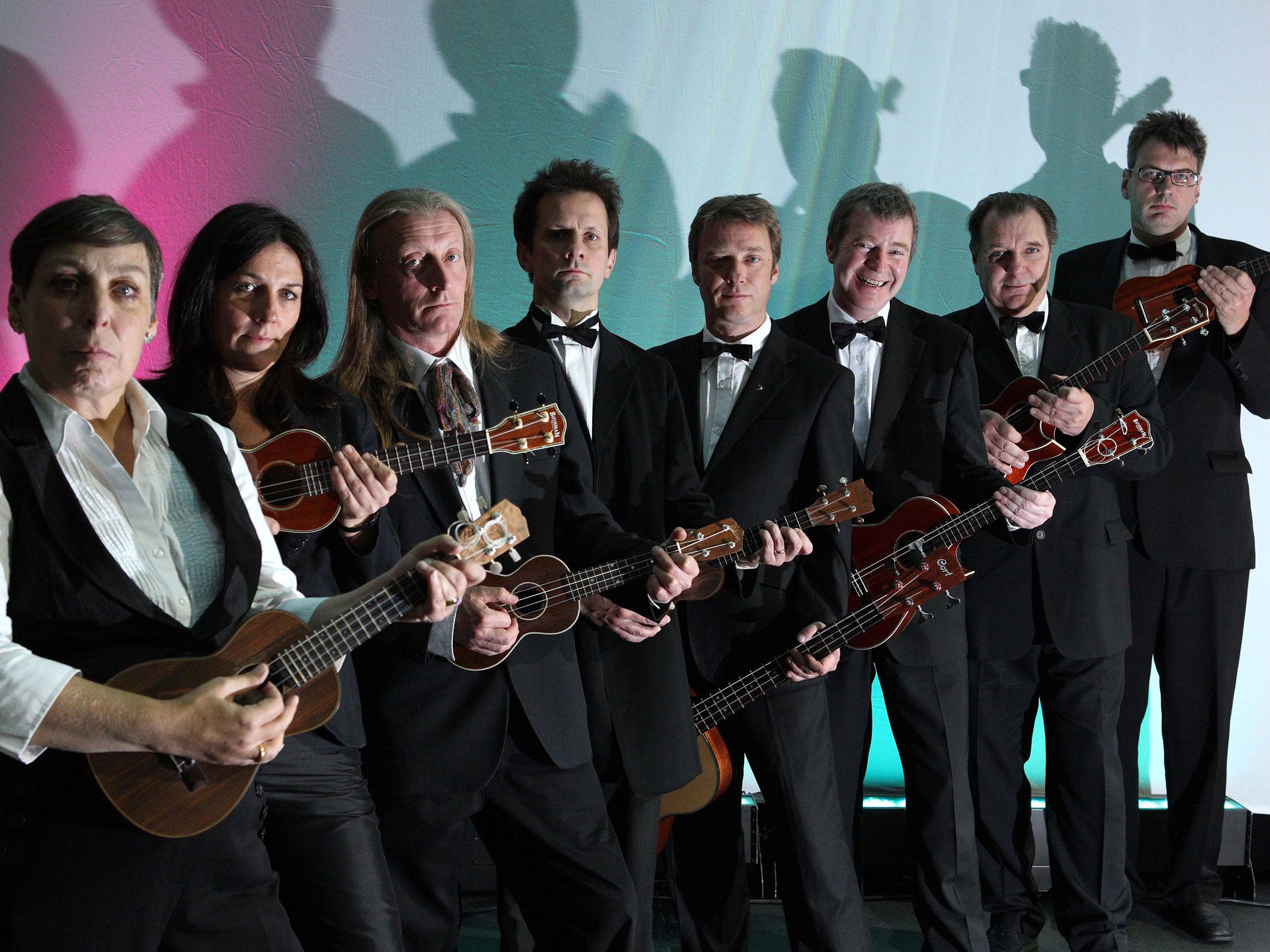The ukelele feud of Great Britain: Rival orchestras go to war...over a name
Ukulele Orchestra of Great Britain has sought an injunction to stop the United Kingdom Ukulele Orchestra

Your support helps us to tell the story
From reproductive rights to climate change to Big Tech, The Independent is on the ground when the story is developing. Whether it's investigating the financials of Elon Musk's pro-Trump PAC or producing our latest documentary, 'The A Word', which shines a light on the American women fighting for reproductive rights, we know how important it is to parse out the facts from the messaging.
At such a critical moment in US history, we need reporters on the ground. Your donation allows us to keep sending journalists to speak to both sides of the story.
The Independent is trusted by Americans across the entire political spectrum. And unlike many other quality news outlets, we choose not to lock Americans out of our reporting and analysis with paywalls. We believe quality journalism should be available to everyone, paid for by those who can afford it.
Your support makes all the difference.The ukulele may be associated with musical joviality but for two orchestras based around the instrument, the air is filled more with legal discord than twanging harmony.
A judge at the High Court in London found himself having to rule in a trademark dispute between a long-established British ukulele band and a recently-formed rival based in Germany.
The Ukulele Orchestra of Great Britain (UOGB), which has been going for 29 years, and has played New York’s Carnegie Hall and the Sydney Opera House, had sought an injunction to stop the United Kingdom Ukulele Orchestra (UKUO) from performing under that name pending a trial.
But Judge Richard Hacon, sitting at the Intellectual Property Enterprise Court, declined to issue the injunction after hearing that such a step would force the cancellation of the younger band’s tour of Britain due to start next month and cost it tens of thousands of pounds.
The rare outbreak of acrimony between aficionados of the instrument made famous in Britain by George Formby is based on what the longer-established orchestra claims are close resemblances between its work and that of its competitor.
The UOGB, whose musical credits include performances with Kaiser Chiefs and Cat Stevens, complains that the UKUO, which also consists of British musicians, is copying its name and style, and could damage its reputation.
These claims are rejected by the UKUO, which was formed around 2009 and boasts that its repertoire stretches from Mozart to Pirates of the Caribbean. Its latest programme is entitled “I Got Uke Babe”.
The UOGB, which has also played Glastonbury and the Royal Albert Hall, launched its legal claim against the UKUO weeks before it was due to start its British tour.
Judge Hacon said that proceedings had been issued too late to allow an injunction ahead of a full hearing of the dispute at a date to be fixed later this year or early next year.
George Hinchliffe, a founder of the UOGB, said: “We feel there are sufficient grounds for us to bring these legal proceedings.”
The UKUO did not respond to a request to comment.
Join our commenting forum
Join thought-provoking conversations, follow other Independent readers and see their replies
Comments